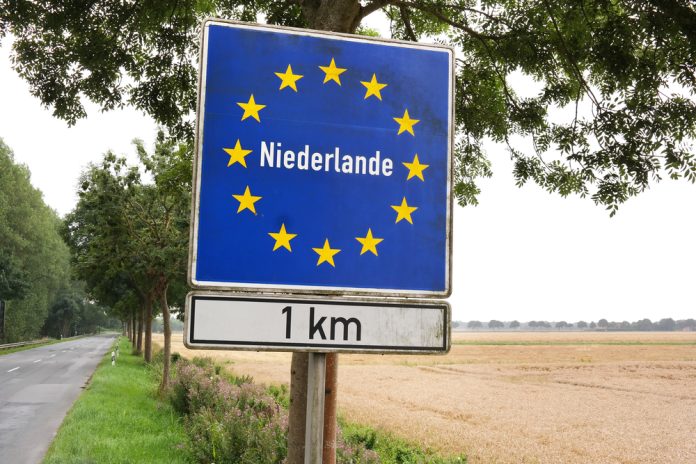The Netherlands will temporarily reintroduce border controls at its internal Schengen borders with Belgium and Germany for six months from December 9. This measure, ordered by the Ministry of Asylum and Migration, is aimed at combating irregular migration and cross-border crime. However, limited staff and resources mean that active checks will only be carried out at a small proportion of the country’s more than 800 border crossings at any one time.
The Royal Netherlands Police will reportedly have no more than 50 officers available to control the borders, allowing for simultaneous checks at only five points at a time. This has raised concerns about the effectiveness of the measure, which is authorised by European Union rules on public order or national security grounds.
There are more than 800 border crossings in the Netherlands, including motorways, provincial roads and smaller routes. Despite the scale of the operation, there are currently five Marechaussee brigades operating in the border areas. These brigades will prioritise locations based on risk assessment and available intelligence.
“Controls will be non-systematic and carried out in a way that minimizes disruption,” Marechaussee spokesperson Mike Hofman said.
Mobile patrols on motorbikes will stop individual cars for checks, rather than setting up fixed checkpoints. Officials are keen to avoid speed limits or lengthy delays, but recognise that some measures may be necessary during large-scale operations.
The temporary border controls, which will last until 8 June 2025, are part of a wider strategy to tackle illegal migration and human trafficking. The European Union’s Schengen Border Code allows member states to temporarily introduce border controls in exceptional circumstances.
“We are implementing these controls to safeguard public order and national security,” a Marechaussee statement explained. “This includes additional checks on international trains from Schengen countries and selected flights with higher risks of irregular migration.”
The practice of spot checks, known as mobile security monitoring (MTV), will also be expanded during this period.
Border controls in EU countries
EU laws authorise member states to temporarily introduce border controls, but only in the case of emergencies or unforeseen situations.
Germany introduced similar measures in September, also for six months and also to combat illegal migration. Since September 16, all persons entering Germany from neighbouring countries have been subject to checks. At the moment, according to the German authorities, the measures taken are having a positive effect.
Following Germany’s example, France started border checks with Belgium, Spain, Luxembourg, Switzerland, Germany and Italy on November 1. France, which also introduced these measures for six months, attributed them to the increased terrorist threat and the growth of illegal migration.
